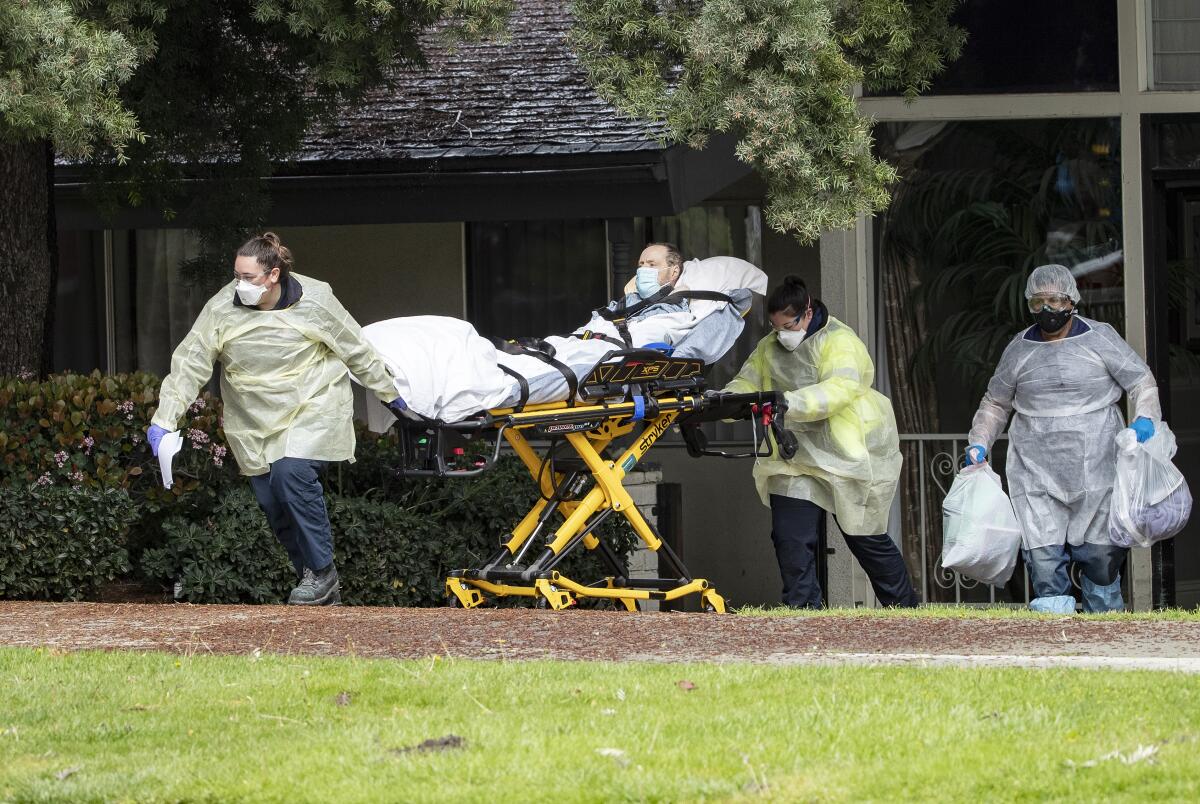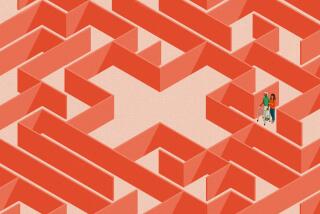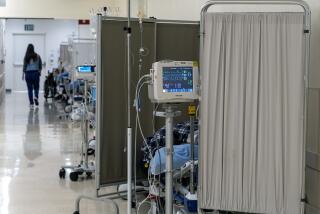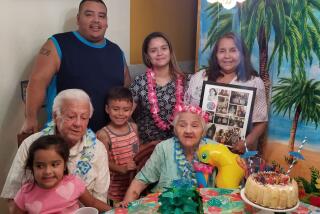In my family of caregivers, social distancing is a luxury we can’t afford

- Share via
On Monday afternoon, the phone rang. Shortly after my father picked it up, I heard him express shock in our native Filipino tongue. He didn’t have to tell me what had happened. I could guess.
A patient he had briefly interacted with at the nursing home where he works had died of COVID-19, the illness caused by the coronavirus.
“Why don’t I take the couch at night?” he suggested.
But we all knew that wouldn’t help. My parents, my older brother and I live in a tiny one-bedroom apartment and breathe the same air.
Later that day, as he was leaving for work, I checked his bag twice to make sure he had packed the tuna sandwich I’d made for him. I reminded him to take his extra mask and alcohol spray. As the one person in the family with the luxury of working from home as a freelancer, I do what I can to keep the others safe and fed.
When my family moved to the United States in late 2000, we were part of a long line of Filipino immigrants who came to the country to fill needs in the workforce. In the Filipino community, the joke typically goes this way: if you’re fortunate enough to have been petitioned by family or a relative and be granted legal status, you become a nurse. Otherwise, you become a caregiver.
In our case, we came through the H-1B visa program after my father was offered information technology work. But when he lost his job during the 2008 recession, we packed our bags and moved 2,000 miles west to stay with relatives who generously took us in. Six months later, we lost our legal status.
Now my parents and my brother are all caregivers, which means they are faced daily with the almost impossible choice of showing up for work and risking coronavirus, or staying home and losing their ability to pay their bills.
I worry about all of them. My brother is 31 and makes $90 a day working 12-hour shifts at a nursing home. He has a history of respiratory troubles and struggles with obesity, things I fear make him more vulnerable to the virus. My mother, who cares for an 82-year-old woman with Alzheimer’s, has started spending most nights at her patient’s house, wanting to limit outside interactions so she doesn’t bring the virus to someone she’s supposed to be keeping safe.
Late on the evening my dad found out about his exposure, I started feeling a little warm, with some discomfort in my throat. I knew it was probably allergies, but I took a Tylenol and made myself a cup of tea. The last thing my family needs is for the person holding the house together to fall ill.
The next day, I was feeling OK, and my brother and I got up early and got in line before the grocery store had even opened to shop for our mother. We were in our usual pandemic shopping attire — surgical masks and latex gloves — and we carried our improvised alcohol spray. We left with a bill of $38.77. Not bad, I thought for food that should last her a week.
We drove 20 minutes to the South Bay, past gated, almost-palatial homes. Finally, we got to our destination and saw my mother at the front door waving in her usual purple scrubs.
“Please don’t come in,” she said politely.
I knew it pained her saying this, since we now see her so rarely. The fact that she stays with her patient is such a luxury for the family that employs her, and such a huge sacrifice for us. It lays bare the inequality of social distancing these days.
“You’re coming home for your birthday, right?” There was a pause. I was prepared for her to say “no.”
“We’ll see,” my mother said. And then, “Do you pray?”
“Yes,” I said.
“I love you,” she said as she waved goodbye. I got in the car and headed home.
M. David is a freelance graphic designer.
More to Read
A cure for the common opinion
Get thought-provoking perspectives with our weekly newsletter.
You may occasionally receive promotional content from the Los Angeles Times.









